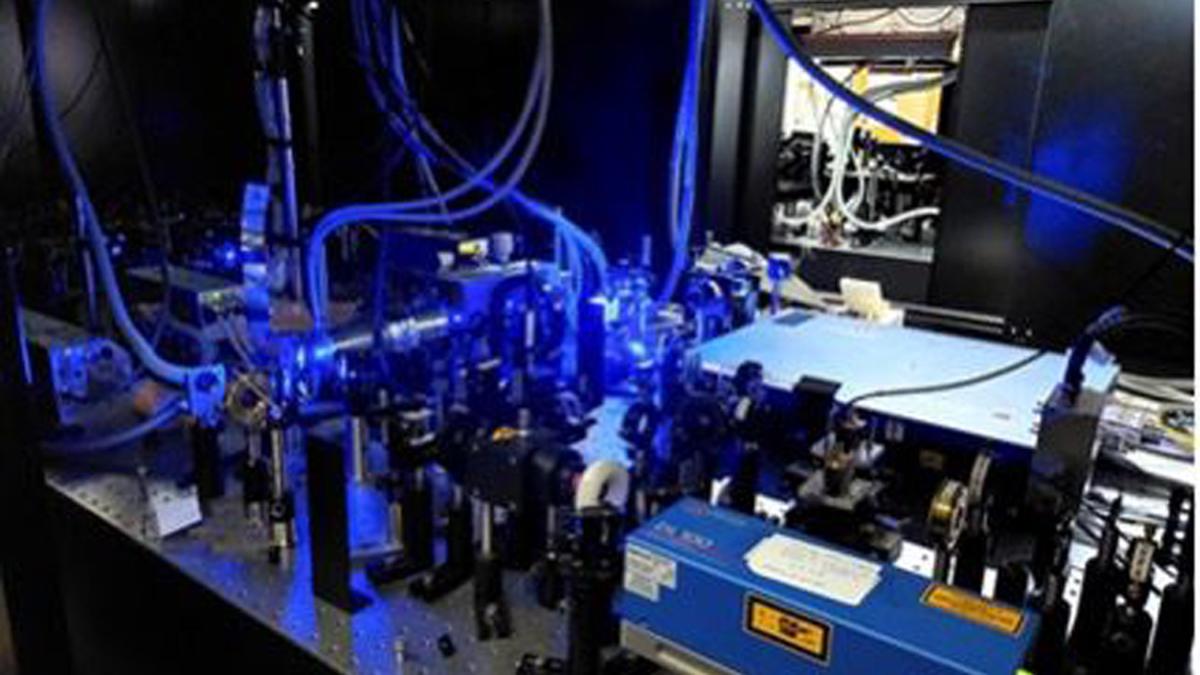
RRI team use quantum magnetometry to make more precise atomic clocks
The Hindu
A Raman Research Institute (RRI) team working with cold Rydberg atoms have used quantum magnetometry to help atomic clocks and magnetometers used for precise timekeeping in navigation, telecommunication and aviation, achieve higher precision and make them additionally robust.
A Raman Research Institute (RRI) team working with cold Rydberg atoms have used quantum magnetometry to help atomic clocks and magnetometers used for precise timekeeping in navigation, telecommunication and aviation, achieve higher precision and make them additionally robust.
According to the Department of Science and Technology, a Rydberg atom is an “excited atom with one or more electrons” that have a very high principal quantum number. This state of excitation is measured with a spectroscopic method called the Electromagnetically Induced Transparency (EIT).
RRI researchers have leveraged the Doppler effect to their advantage and achieved a ten-time enhanced response to the magnetic field while performing quantum magnetometry (phenomenon exploiting the quantum nature of light and atoms for precision measurement of magnetic fields) on thermal rubidium atoms using Rydberg EIT in a room temperature-based environment.
Deploying Rydberg EIT, the researchers detected atoms in their highly excited (Rydberg) states.
“When the Rydberg EIT was observed in an unconventional configuration of the probe and the coupling beam, where the Doppler shift was not compensated, an enhanced response to the magnetic field was observed. It is the Doppler shift which causes a larger response of the Rydberg EIT signal to an externally applied magnetic field,” said Sanjukta Roy, head of Quantum Optics with Rydberg Atoms Lab (QuORAL) at RRI
Generally, Doppler shift is perceived as the change in frequency of a wave by a moving observer. When a laser beam flashes on atoms, their thermal motion leads to a Doppler shift – an atom moving towards the laser beam sees a higher frequency, whereas one moving away sees a lower frequency. This effect is generally assumed to be detrimental to sensing.
The RRI team, in the paper published recently in New Journal of Physics, have demonstrated and successfully harnessed the quantum effects at room temperature by effectively using this Doppler effect to their advantage.





















 Run 3 Space | Play Space Running Game
Run 3 Space | Play Space Running Game Traffic Jam 3D | Online Racing Game
Traffic Jam 3D | Online Racing Game Duck Hunt | Play Old Classic Game
Duck Hunt | Play Old Classic Game











